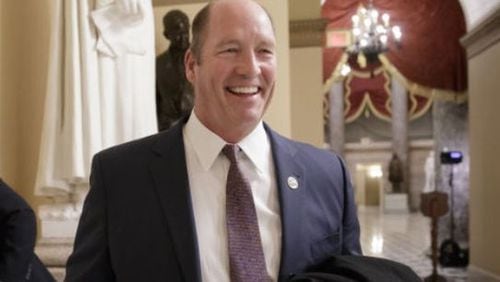Rep. Ted Yoho, a Florida Republican and critic of the Affordable Care Act who opposed his party's health care plan, described Medicaid as a worldwide failure.
The ACA passed under President Barack Obama included the expansion of Medicaid, which provides health coverage for about 74 million poor Americans. (Yoho’s state of Florida rejected the expansion.)
“With the Affordable Care Act, what’s happened is, all these people have been running to Medicaid, and it’s been proven over and over again Medicaid has the worst outcomes in the industrialized world as far as the quality of health care,” he said in a March 14 interview on PBS.
Yoho spokesman Brian Kaveney walked back the congressman’s statement somewhat when we asked for evidence that Medicaid has the worst outcomes in the industrialized world. “Hindsight being 20/20, the congressman didn’t mean to use the word ‘worst,’ ” Kaveney said. “The congressman was pointing out that since the implementation of ACA, health care trends have not improved.”
Yoho was referring to two articles in 2017 by Oren Cass, a senior fellow at the conservative Manhattan Institute and a policy director for Mitt Romney's 2012 presidential campaign. Cass argued that Medicaid studies show the program doesn't improve public health. But there aren't studies comparing its health outcomes to other industrialized countries.
“Whether people on Medicaid have better or worse outcomes than people in other countries doesn’t tell you anything about the effectiveness of Medicaid,” Cass told PolitiFact. “The question is whether there are public programs that have as little effect on outcomes relative to the baseline of no-insurance in that country.”
The Oregon Health Insurance Experiment compared about 6,000 patients who got a slot in a 2008 Medicaid expansion and about 6,000 who didn't. Over two years, the study found that while patients in the program initially reported feeling better, there was no real change in health indicators such as diabetes control, cholesterol or blood pressure. However, patients in the study did report better access to care and improvements in mental health.
Cass also cited a study published in the Journal of the American Medical Association that examined the relationship between life expectancy and income. The study was not about Medicaid, but found differences in life expectancy for low-income people is not significantly correlated with measures of the quantity and quality of medical care.
“Our study shows that behavioral conditions such as smoking and obesity are very important in mortality,” study author Raj Chetty told PolitiFact. “The study does not imply that Medicaid is not important, let alone that it has the worst outcomes in the industrialized world.”
Cass cited one positive health impact from Medicaid: He wrote that it “may have significant positive effects on pregnant women and young children.”
Researchers at the nonpartisan Kaiser Family Foundation reviewed 108 studies about the expansion of Medicaid under the Affordable Care Act. They found most research shows that the expansion improved access to care and self-reported health. More research was needed, however, to know the effects on health outcomes.
Yoho’s spokesman said he didn’t mean to say “worst” and intended to argue that Medicaid under the ACA hasn’t improved health outcomes.
His evidence focused on studies about Medicaid outcomes within the United States with no comparison to other countries.
We rate Yoho’s original statement False.
“It’s been proven over and over again Medicaid has the worst outcomes in the industrialized world as far as the quality of health care.”
U.S. Rep. Ted Yoho, R-Fla., in a March 14 interview on PBS.






